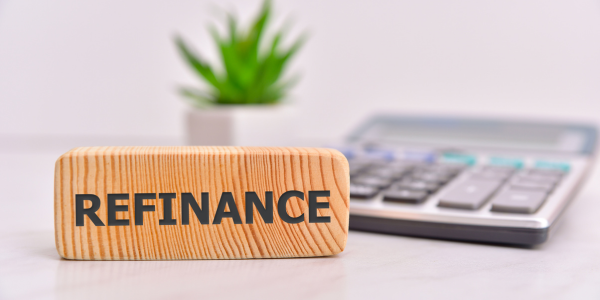Why Refinancing Can Be a Smart Move for Homeowners
Refinancing is a valuable financial tool that allows homeowners to adjust their mortgage to better fit their needs. For those with higher interest rates or an opportunity to take advantage of lower rates, refinancing can lead to major savings. As the year comes to a close, refinancing might offer additional advantages, especially when it comes to managing taxes and starting the new year with lower monthly payments. If you’ve considered refinancing, acting now can help you make the most of these benefits before December 31.
Key Benefits of Refinancing Before Year-End
One of the biggest draws of refinancing is the chance to lower monthly mortgage payments. By securing a lower interest rate, you can reduce your monthly commitment, freeing up funds for other expenses or future savings. Lower monthly payments also allow for more flexibility, which can be especially useful for those who plan to make upgrades to their home or start other projects.
Refinancing also allows homeowners to access the equity they’ve built up over time. A cash-out refinance lets you tap into this equity for major expenses, like home improvements, debt consolidation, or investment opportunities. Many homeowners use this option to fund home renovations or other high-cost projects, allowing them to improve their property while enjoying the benefits of homeownership.
Another valuable benefit of refinancing is the option to shorten the loan term. Reducing your loan term from 30 years to 15 years, for example, may slightly increase monthly payments but leads to significant interest savings over the life of the loan. Shorter terms are ideal for those who plan to stay in their home long-term and want to build equity faster while saving on interest.
Refinancing before the year ends may also offer tax benefits. Homeowners who refinance and pay additional mortgage interest before December 31 may be eligible for mortgage interest deductions. This can help reduce taxable income, leading to potential savings on your tax return.
When Refinancing Makes Sense for Homeowners
Refinancing isn’t for everyone, but certain situations make it especially worthwhile. Homeowners with high-interest loans from a few years back may find that today’s rates are lower, allowing them to reduce monthly payments and save on interest. Additionally, if you’re planning on staying in your home for several years, refinancing can offer long-term savings that offset the initial refinancing costs.
Another ideal time to refinance is when market conditions favor it, such as when interest rates are low or home values are high. When home values increase, you may qualify for a lower rate or a cash-out refinance that provides access to more of your home’s equity. Taking advantage of these conditions can significantly improve your financial position, especially as the new year approaches.
Steps to Take When Considering Refinancing
The refinancing process begins with reviewing your current mortgage terms. Understanding your interest rate, remaining balance, and loan terms helps you determine whether refinancing makes financial sense. If you’re currently paying a high interest rate, refinancing can reduce your costs and improve your budget flexibility.
Once you have a clear picture of your current loan, it’s time to shop around for the best rates and terms. Lenders offer varying interest rates and refinancing terms, so it’s wise to compare multiple offers to find the most favorable option. Pay attention to both interest rates and any fees associated with refinancing, as these can impact your total savings.
Using a mortgage calculator can help you see the potential monthly and long-term savings that refinancing could bring. Calculating your savings allows you to decide if refinancing will reduce your costs enough to justify the refinancing fees and effort.
Common Refinancing Costs and How to Prepare
Refinancing involves some upfront costs, which vary by lender and loan type. Common expenses include loan origination fees, appraisal fees, and closing costs. These fees can add up, so it’s essential to budget for them and factor them into your decision-making process. Generally, refinancing costs range from 2% to 5% of the loan amount.
Budgeting for these costs is important, especially if your goal is to recoup those expenses through savings over time. In some cases, refinancing can pay off quickly, particularly if the savings on monthly payments outweigh the initial fees.
A Checklist for Refinancing Before Year-End
If you’re considering refinancing before the year ends, here’s a quick checklist to help you stay on track:
- Review your current loan terms and interest rate
- Compare offers from multiple lenders to find the best rates
- Calculate potential monthly and annual savings with a mortgage calculator
- Check for any potential tax benefits of refinancing in the current tax year
- Complete any necessary paperwork before lender deadlines
By following this checklist, you can streamline the refinancing process and ensure that you’re maximizing your benefits.
How Lockstep Realty Supports Homeowners
At Lockstep Realty, part of eXp Realty, we understand that making informed financial decisions is crucial for homeowners. Whether you’re considering refinancing to save on monthly payments, access your home’s equity, or reduce your loan term, our team can help you navigate the process and connect you with trusted lenders. We’re here to support you in finding the best options that align with your financial goals.
Frequently Asked Questions (FAQs)
- What are the main benefits of refinancing a mortgage?
Homeowners can benefit from lower monthly payments, shorter loan terms, or accessing home equity, depending on their goals. - Is refinancing before the year ends beneficial for tax reasons?
Yes, refinancing before December 31 may offer tax deductions on mortgage interest for the current tax year, which could lower your taxable income. - How much does refinancing usually cost?
Typical costs include origination fees, appraisal fees, and closing costs, which can vary based on lender and loan amount. - Can refinancing help with home improvements?
Absolutely! A cash-out refinance can provide funds for home improvements or other significant expenses by using the equity built up in the home. - Does Lockstep Realty assist with refinancing advice?
While we don’t offer mortgages directly, Lockstep Realty can help you understand refinancing options and connect you with reliable lenders to support your goals.



